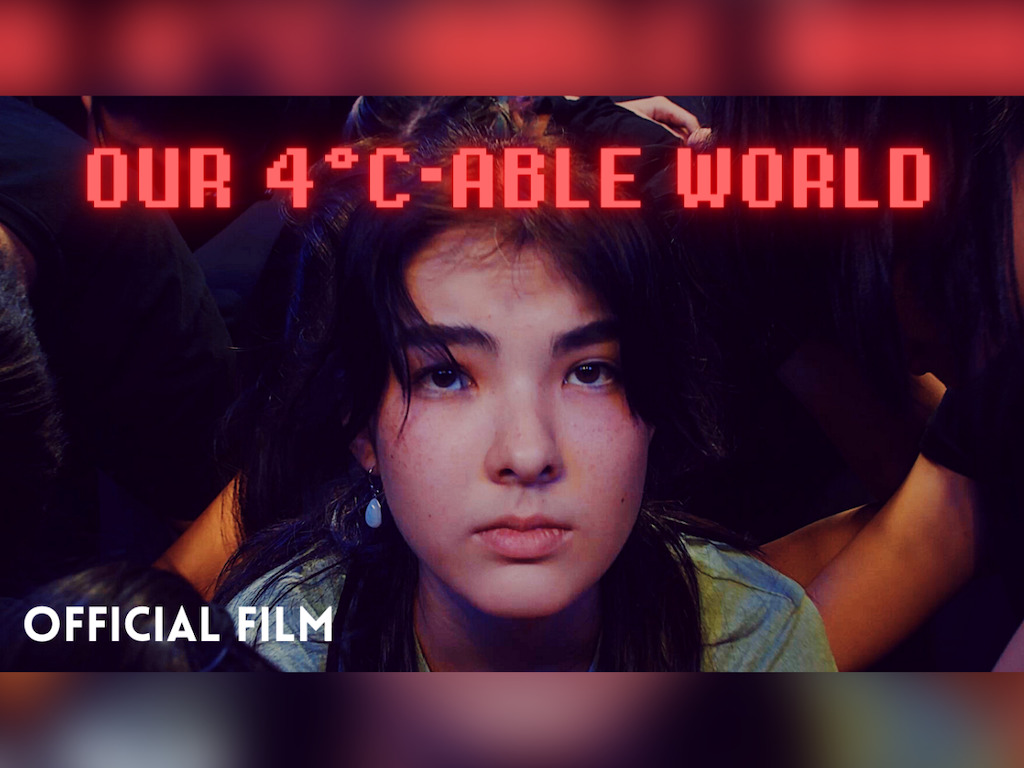Q&A: Makers Behind Student-Led Climate Inequality Film ‘OUR 4°C-ABLE WORLD’ – ‘The Problem Lies In The Communication Of This Issue’
8 Mins Read
OUR 4°C-ABLE WORLD is a new student-led theatrical production that has premiered on YouTube on May 1, centred on the disproportionate impact of the climate emergency on marginalised communities. Following the fictional story of teenage climate activist Jane, the film takes viewers on her journey to discovering the intersectionality between the climate crisis, poverty and plethora of societal issues.
We recently had the chance to speak to the young makers behind the play, including co-writer and directors Alicia Shen and Katia Shek, and director of photography and editor Ewan Windebank, to hear more about the inspiration behind their project, behind-the-scenes experiences, what they hope audiences will take away from the movie, and much more.
GQ: How did this movie come about?
Katia Shek: Despite efforts to galvanise community support, sometimes it may seem like local actions are futile amidst the majority of people’s climate negligence. Regardless of the credible data that we have access to or the knowledge of human suffering as a result of man-made climate change, most people simply do not feel the need to act for change.
We believe that the problem lies in the communication of this issue. Humans are neglecting to see the relationship between us and our home. Instead of communicating such foreign impacts of the climate crisis, people need to be told that our planet forms the basis of our livelihood. The extent of our melting ice caps does not just mean sad polar bears, it means exacerbated flooding and storm surges; it means increased heat waves and higher food insecurity; it means massive waves of climate refugees and near irreversible damage.
Humans are neglecting to see the relationship between us and our home. Instead of communicating such foreign impacts of the climate crisis, people need to be told that our planet forms the basis of our livelihood.
Katia Shek, Co-Writer & Director
So, this was our attempt to humanize the issue in the best way we knew how to – through art! Theatre has the capacity to evoke emotion and build common ground, even for polarising issues such as climate change. It allows the audience to reflect and evaluate their roles in the fight for human and environmental justice.
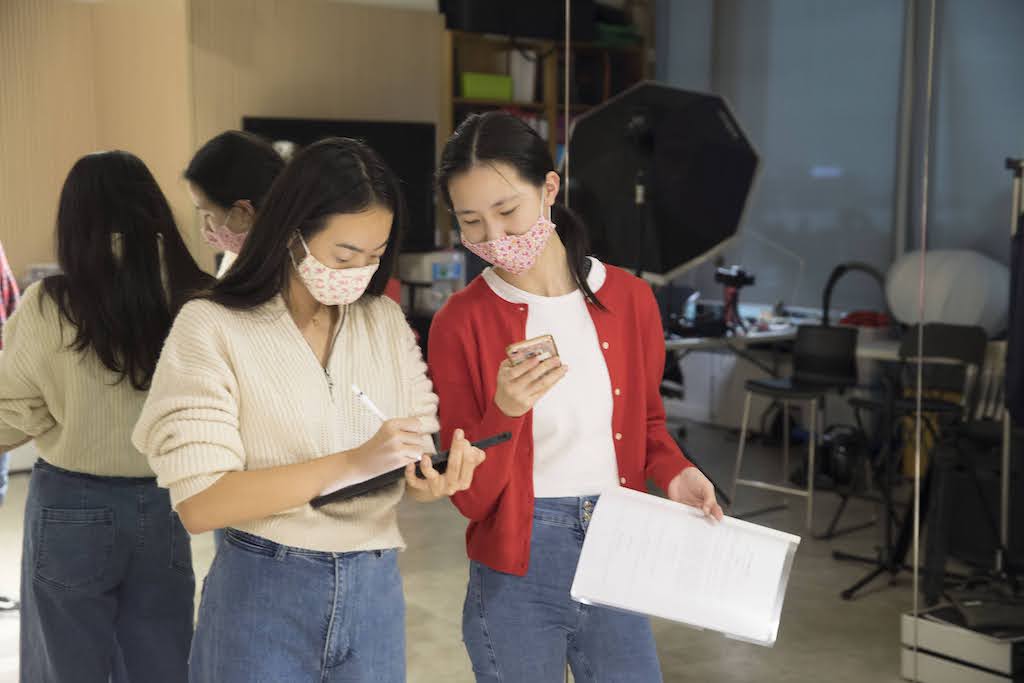
GQ: Your film was originally a play. When and why was the decision made to turn it into a movie?
Alicia Shen: Yes, we originally staged this as a play. We had actually almost signed a venue contract with a theatre but decided against it because at the time, the COVID-19 situation was incredibly uncertain. We did not want to take the huge risk in the case that we would not be able to perform. We found that filming the show would let us run things on our own schedule and would also require less in-person sessions, making the process safer and more efficient.
GQ: What is the mission of your movie?
Ewan Windebank: Our mission is to raise awareness for the climate crisis and more importantly, encourage people to take action against climate change. I also hope the film is able to inspire other young artists in the film industry, as this was a student-led production powered by young people with passion.
AS: I’d say the mission of this movie is to spark empathy by presenting the emotional and human sides to the climate crisis. As they follow the journeys of these characters, I hope that the audience can see how urgent the need for climate action is, as well as how climate change affects our sense of self and relationships with others.
KS: To rightfully characterise the environmental crisis as a human justice issue, establish a personal connection between each viewer and the multifaceted impacts of the issue, and ultimately, empower viewers to create tangible change for their communities.
The mission of this movie is to spark empathy by presenting the emotional and human sides to the climate crisis.
Alicia Shen, Co-Writer & Director
GQ: How was the movie made and financed?
AS: Katia and I came up with the plot and script, and we devised the whole thing. When we switched to the film format, Ewan did an amazing job to help execute our collective vision and make fitting adjustments for the new artistic medium. This production was originally meant to be a school play, so we had initially planned for this to be a low-budget project with lots of support from our school’s theatre department. Because of COVID-19 restrictions at school, we saw that it would be more practical to bring the project beyond the school environment, which had the added benefit of allowing our message to reach wider audiences. Since we were working independently, we financed everything ourselves with support from our families. Both when we were planning the show as a play and as a film, we received advice and help from numerous supportive people in the local arts community. We are so grateful for all of the people that have helped us bring this project to life and who have put faith in a group of students to come up with something special.
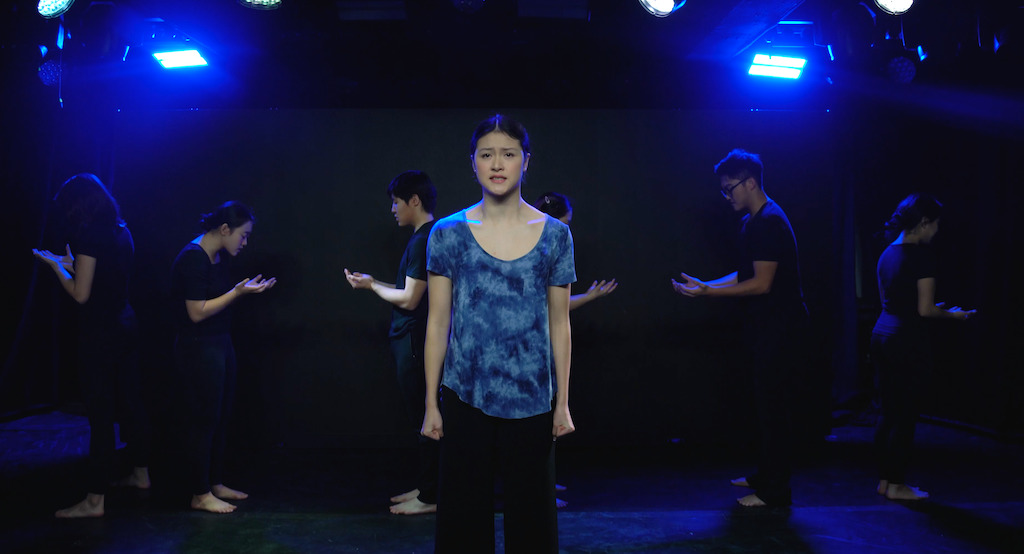
GQ: Are you angry about the climate crisis?
EW: Absolutely. How can you not be? The climate crisis has been a very evidently destructive issue that has affected hundreds of millions of people across the globe, and it will continue to affect more and more people as it goes on. And despite the global concern, this causes, action has been close to none. I find it very difficult to fathom the decision of governments across the globe with their slow, ineffective policies such as the EU Climate Law.
AS: I definitely feel angry about the climate crisis, but this anger often manifests itself in an emotion more similar to grief and anxiety. It’s really difficult to be aware of the scope of this issue and the extent to which it harms people while still seeing lack of empathy and limited action on a systemic level. The climate crisis makes me feel helpless at times, which is why joining environmental student groups and raising awareness through projects like this is so impactful on a personal level- they allow me to heal and reconcile with the fact that while I have limited ability to make big changes, I can still make a difference using my own strengths.
The climate crisis has been a very evidently destructive issue that has affected hundreds of millions of people across the globe, and it will continue to affect more and more people as it goes on.
Ewan Windebank, Director of Photography & Editor
KS: I think one of the biggest flaws of the human mind is its inability to look at the long-term consequences. To say that we are saints in this equation would be nothing but a lie because we are fundamentally flawed in our ability to prioritise the planet over conveniences, even if prioritising the planet indirectly means prioritizing ourselves. So yes, I am angry at our inaction and ignorance.
GQ: Do you think young people care more about the climate crisis than older generations?
EW: I definitely think so. I believe there are two parts to this – Firstly, I think that this generation of young people are fortunate to have so much exposure to information thanks to the incredible advancements of technology, mobile phones and social media have been critical pillars for the spread of information. Secondly, the fact that its the younger people who will have to live with and face the consequences of the climate catastrophe really drives the youth support for the movement.
AS: I think that young people do seem to care more about the climate crisis, or rather, they are more willing to act and push for change. This is not to say that the older generations are not aware of the crisis or do not care about it, but it is clear that young people are more emboldened to act because of how the crisis directly affects them and their futures.
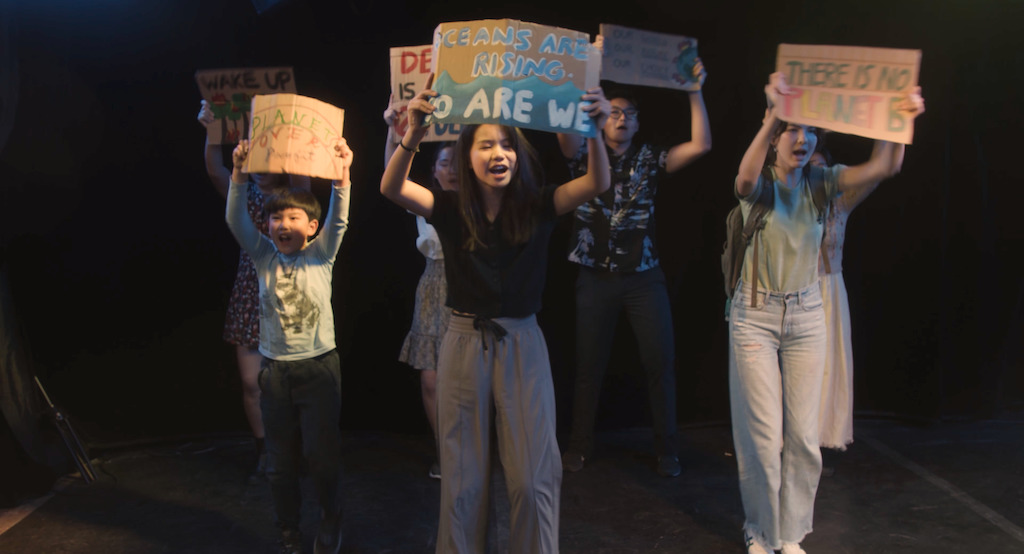
KS: Young people are capable of making substantiated claims in the fight for climate justice because of the numerous data points collected by older generations. The general trend may seem to show young people more inclined to take action, but there are incredible environmental warriors from all generations who have paved the way for the progression of the movement that we know today.
GQ: In your opinion, what is the biggest way people can help fight the consequences of the climate crisis in their daily lives?
KS: People always talk about the 3Rs – recycle, reduce and reuse. And yes, this definitely helps the cause, don’t get me wrong. But we’re at the point where much larger action needs to be taken, as the point of no return is fast approaching. Thus, I reckon as individuals, we need to encourage education, government policies, things that grow into systemic change, because if these become priorities of the people, governments, CEOs and institutions that can make larger change are more likely to make it priorities to them too.
It is more about fostering a culture of environmental stewardship that eventually accumulates into larger, more tangible and systemic change.
Katia Shek, Co-Writer & Director
Educating ourselves, living our values, starting conversations, developing projects to further sustainability in our local communities… Yes, avoiding that plastic straw may seem futile in the grand scheme of things but it is more about fostering a culture of environmental stewardship that eventually accumulates into larger, more tangible and systemic change.
GQ: How can people support your movie?
EW: You can share the movie/trailer on social media, leave a like or a comment. Or just simply talk about it with friends and family. Every little bit of exposure we get really helps us and the cause.
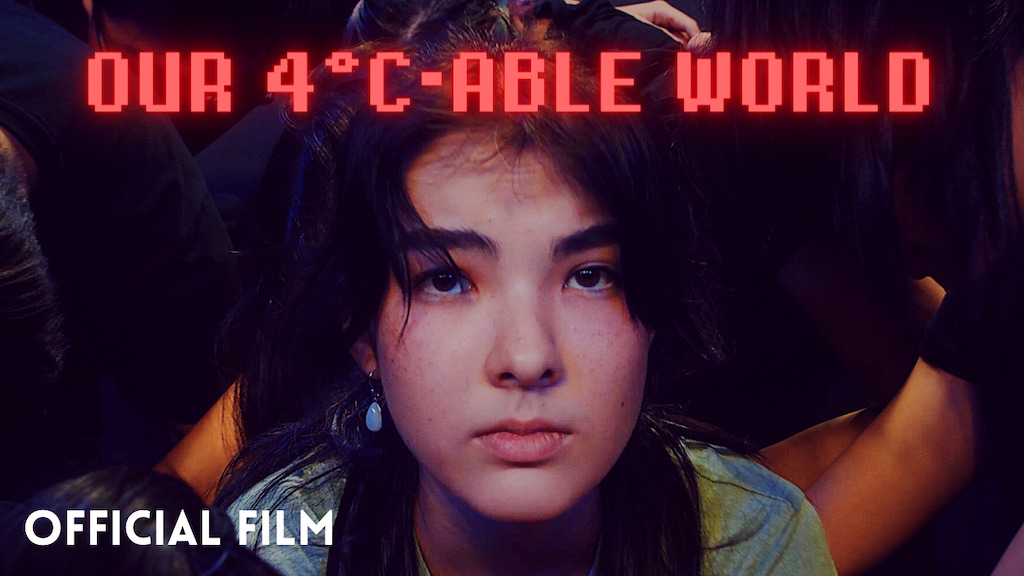
Watch OUR 4°C-ABLE WORLD on YouTube here.
Lead image courtesy of OUR 4°C-ABLE WORLD.


